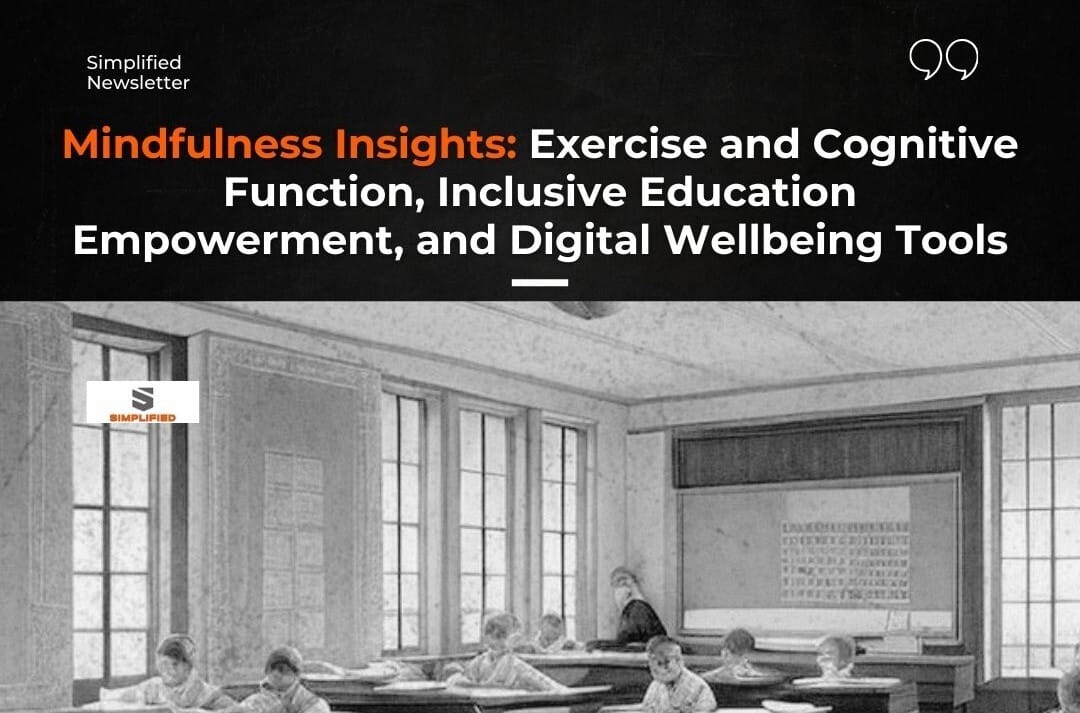Mental Health:
The Rise of Digital Well-Being Tools

In our increasingly digital world, the integration of technology in promoting mental well-being is gaining momentum. This week, we explore the latest advancements in digital well-being tools designed to enhance our mental health and cultivate a healthier relationship with technology.
Mindfulness apps have become popular, providing guided meditations, breathing exercises, and tools for stress reduction. These apps enable individuals to incorporate mindfulness practices into their daily lives, promoting relaxation, self-awareness, and overall mental well-being.
Additionally, digital tools are being developed to track and manage screen time, helping individuals maintain a healthy balance between technology use and offline activities. Sleep trackers and relaxation apps offer assistance in improving sleep quality, aiding relaxation, and reducing insomnia.
By harnessing the power of technology, these digital well-being tools aim to empower individuals to take charge of their mental health and practice self-care in a digital age.
Stay tuned for next week's edition of Mindful Living Weekly, where we'll continue to explore the latest developments and insights in psychology, education, and mental health.
Read More:
"Investing in yourself is the best investment you will ever make. It will not only improve your life, it will improve the lives of all those around you."
Education:
Empowering Students With Special Needs

Inclusive education has gained significant attention and importance in recent years. It aims to ensure that students with special needs are fully included in regular classrooms, providing them with equal opportunities for education, socialization, and personal growth. This week, we celebrate the inspiring stories and initiatives that promote inclusivity in educational settings.
Teachers and schools are adopting innovative approaches, such as Universal Design for Learning (UDL), to create inclusive environments that cater to diverse learning styles and abilities. UDL principles involve flexible teaching methods, accessible materials, and personalized learning experiences to meet the unique needs of each student.
Moreover, fostering a supportive and accepting school culture is crucial for the success of inclusive education. Schools are implementing programs that raise awareness, promote empathy, and celebrate differences among students. By creating an inclusive atmosphere, educators are nurturing a sense of belonging and empowering students with special needs to thrive academically, socially, and emotionally.
Read More:
Psychology:
The Link Between Physical Exercise and Cognitive Function

The study published in the Journal of Cognitive Psychology has shed light on the fascinating connection between physical exercise and cognitive function. Researchers have long suspected that engaging in regular exercise has positive effects on the brain, but this study provides concrete evidence to support that hypothesis.
The findings suggest that aerobic activities, such as running, swimming, or cycling, can significantly improve cognitive abilities. Regular exercise has been linked to enhanced memory, increased attention span, improved problem-solving skills, and faster information processing. It is believed that physical activity promotes the release of neurotransmitters and growth factors in the brain, which contribute to the growth of new neurons and the strengthening of neural connections.
These research findings underscore the importance of incorporating exercise into our daily routines, not only for physical fitness but also for cognitive well-being. Whether it's a brisk walk in nature, a yoga session, or a workout at the gym, finding ways to stay active can have a profound impact on our mental agility and overall cognitive performance.
Read More Here!
FROM THE FOUNDER
Thank you for taking the time to read and enjoy Simplified Weekly Newsletter. A lot of effort has gone into hand selecting interesting and dynamic content to deliver to you.
If you enjoy what you see here I encourage you to visit our other social media accounts below for more or share the newsletter with family or friends!
Thank you,
-Zach Nailon, Simplified Weekly Newsletter

